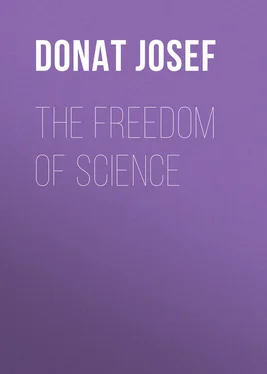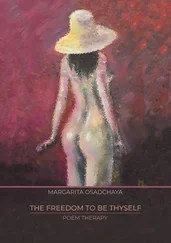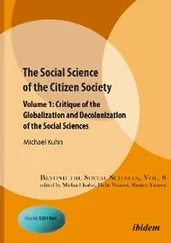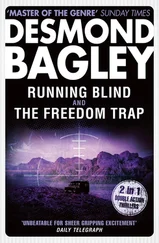Josef Donat - The Freedom of Science
Здесь есть возможность читать онлайн «Josef Donat - The Freedom of Science» — ознакомительный отрывок электронной книги совершенно бесплатно, а после прочтения отрывка купить полную версию. В некоторых случаях можно слушать аудио, скачать через торрент в формате fb2 и присутствует краткое содержание. Жанр: foreign_antique, foreign_prose, на английском языке. Описание произведения, (предисловие) а так же отзывы посетителей доступны на портале библиотеки ЛибКат.
- Название:The Freedom of Science
- Автор:
- Жанр:
- Год:неизвестен
- ISBN:нет данных
- Рейтинг книги:4 / 5. Голосов: 1
-
Избранное:Добавить в избранное
- Отзывы:
-
Ваша оценка:
- 80
- 1
- 2
- 3
- 4
- 5
The Freedom of Science: краткое содержание, описание и аннотация
Предлагаем к чтению аннотацию, описание, краткое содержание или предисловие (зависит от того, что написал сам автор книги «The Freedom of Science»). Если вы не нашли необходимую информацию о книге — напишите в комментариях, мы постараемся отыскать её.
The Freedom of Science — читать онлайн ознакомительный отрывок
Ниже представлен текст книги, разбитый по страницам. Система сохранения места последней прочитанной страницы, позволяет с удобством читать онлайн бесплатно книгу «The Freedom of Science», без необходимости каждый раз заново искать на чём Вы остановились. Поставьте закладку, и сможете в любой момент перейти на страницу, на которой закончили чтение.
Интервал:
Закладка:
It was Sabatier who maintained that “an external authority, no matter how great one may think it to be, does not suffice to arouse in us any sense of obligation.” And Th. Lipps says on this further: “If obedience is taken in its narrower sense, that is, of determination by the will of another, then no obedience is moral.” “In brief, obedience is immoral – not as a fact but as a feeling, betokening an unfree, slavish mind” (Die ethiseben Grundfragen, 2d ed., 1905, p. 119). And W. Herrmann assures us. “We would deem it a sin if we dared treat a proposition as true of which the ideas are not our own. If we should find such a proposition in the Bible, then we may perhaps resolve to wait and see whether its truth cannot be brought home to us after we have obtained a clearer and stronger insight of ourselves. But from the resolution to take that proposition as true without more ado, we could not promise ourselves anything beneficial.”
It is for the sovereign subject himself to decide whether the ideas offered are compatible with the rest of his notions. A truth offered from without is acceptable to the subject only when, and because, he can produce of himself at the same time what is offered; but he cannot accept the obligation of submitting to that truth in obedience to faith. “There is no infallible teaching authority on earth, nor can there be any. Philosophy and science would have to contradict themselves to acknowledge it,” says another champion of Kant's freedom ( Paulsen , Philosophia militans, 2d ed., p. 52). Hence the reason why there cannot be any infallible authority is, not because it does not offer the truth, but because the human intellect must not be chained down.
Now, this is no longer true freedom, but rebellion against the sacred right that truth has over the intellect. It is rebellion against the supreme authority of God, who can oblige man to embrace His revelation with that reason which He Himself has bestowed upon man. It is a misconception of the human mind, for it is by no means the source of truth and absolute knowledge, but weak and in need of supplement. Many truths it cannot by itself find at all, while in the quest for others it needs safe guidance lest it lose its way. If it refuses to be supplemented and guided from above, it demands the freedom of the weak vine allowed to break loose from the needed support of the tree, the freedom of the planet allowed to deviate from its orbit to be hopelessly wrecked in the universe. The barrenness and disintegration in the ideal life of our own unchristian age, are clear testimony that freedom is not only lawlessness but a sin against one's own nature.
Or, do they seek to save themselves by asserting that a divine revelation and the founding of an infallible Church are impossible ? Very well, then, let them prove it. On this the question hinges. If they can prove it to us, that very moment we shall cease to be faithful Catholics, and Christianity will have been the most stupendous lie in history. But if the reverse is the case, then all declamations in the name of free research fall to the ground.
This impossibility, however, could only be proved by the aid of a presumption. This presumption is atheism , which denies the existence of a personal God, or at least doubts it. If it is admitted that there is a personal God, then it is self-evident that He can give a revelation, and found an infallible Church, and can oblige all to believe. But herewith collapses also the liberal principle that, in reasoning, one may reject an external authority. Hence the principle of liberal freedom in science can only then be taken seriously, when one advances to atheism. Then, of course, they will say with Nietzsche : God is dead; long live the transcendental man!
Our assertions are proved by experience. At the end of the eighteenth century the enlightenment began by excluding all revelation; but it was desired to retain the rational truth of God's existence. Since then, liberal science has been aiming at atheism in philosophy, whether open or masked. And if we follow up the career of men who have left their faith, we shall soon find that if they do not seek peace in the sheltering harbour of thoughtlessness, they have reached the terminal station of atheism. There is no stopping on this incline.
Since it is the express fundamental principle of the liberal freedom of research, that science is not bound to any external authority, it is evident that it is nothing else but the refusal to submit to God's authority, hence, also, to submit to truth if it appears as revelation. For, either it is admitted that if there is a divine revelation, we have to give it our assent – and in this event liberal freedom of science would have to be abandoned, – or this liberal freedom is adopted in real earnest – then it must be admitted that it is tantamount to radical apostasy and defection from the truth . If a man wishes to be a faithful Christian and at the same time to uphold the liberal freedom of science, then he has never made clear to himself what he wishes.
Ecce ancilla Domini. Thus spoke the Mother of the Lord, when she heard the message that she was to receive the Word of the eternal Father in her bosom. This word of humility and submission was the condition under which she could receive in herself the eternal Wisdom of the Father.
Behold, the Handmaid of the Lord! This word of humility and submission to God must also be spoken by the creature's intelligence, if it desires by faith to share in God's truth. Without humility of mind a faithful attachment to God is impossible; pride and arrogance lead to desertion of God, faith, and truth. Multum errant, quoniam superbi sunt , says Augustine of the erring companions of his youth. Only if there is humility does God's wisdom cross the threshold of the creature's mind, only if there is humility can it be said of man: Et verbum caro factum est et habitat in nobis, plenum gratiae et veritatis .
Chapter II. The Authority Of Faith And The Free Exercise Of Research
Preliminary Remarks
We must not stop at what we have just said in general about the relation between the freedom of research and the obligation to believe. We must go further into detail, in order to give a more exact explanation of how and where the authority of faith clashes with research and restrains it. Is it true that the believing scientist cannot move freely in his research, that there are barriers on all sides which he may not overstep? Is it true that the Church may prescribe for the Catholic scientist what he is allowed to defend and approve, what he ought to refute and reprove, suppress or advocate, so that his eyes must ever be turned towards Rome, to inquire and ascertain what might there be approved? And what a chain of proscriptions of free thinking is attached to the name of Rome! Index, Syllabus, Galileo – link after link is added to this chain of miserable slavery!
We shall say something more about this chain later on. First we must consider the principal question: Where and how do faith and science come in contact? And what we are going to say we shall condense into four points. Thus freedom of science will be more precisely defined; it will be shown what freedom revelation, and especially the guardian of revelation, the Church, offers to science: there can be no doubt that its natural freedom of exercise must be left to science intact.
We shall deal in the first place with the profane sciences , and, at least for the present, leave aside the discussion of theology, since it is clear that theology, being the science of faith, must assume a peculiar position in regard to the authority of faith: theology, moreover, is a special mark for attack; accordingly we shall deal with it particularly later on. However, the principles to be cited, being of a general nature, refer also to the science of faith, and for this reason we shall have occasion to refer to them.
Читать дальшеИнтервал:
Закладка:
Похожие книги на «The Freedom of Science»
Представляем Вашему вниманию похожие книги на «The Freedom of Science» списком для выбора. Мы отобрали схожую по названию и смыслу литературу в надежде предоставить читателям больше вариантов отыскать новые, интересные, ещё непрочитанные произведения.
Обсуждение, отзывы о книге «The Freedom of Science» и просто собственные мнения читателей. Оставьте ваши комментарии, напишите, что Вы думаете о произведении, его смысле или главных героях. Укажите что конкретно понравилось, а что нет, и почему Вы так считаете.












